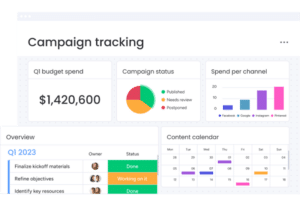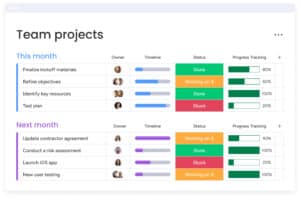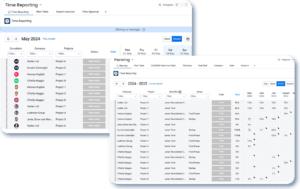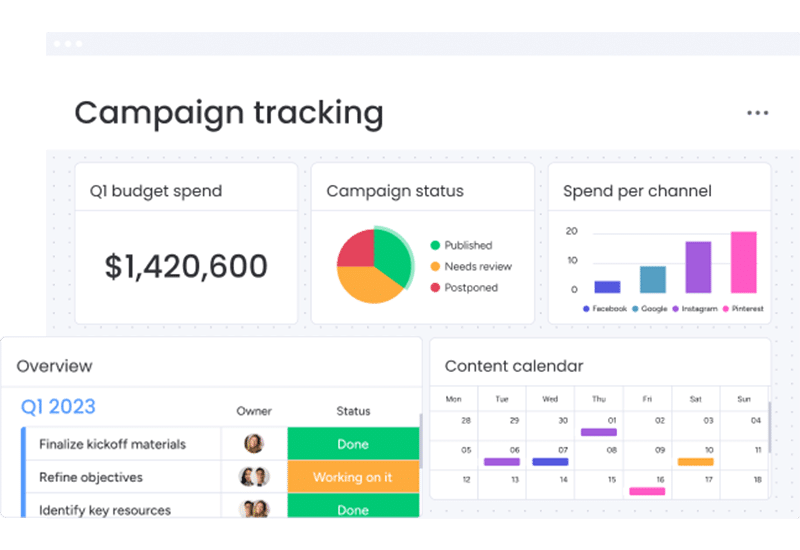Diving Deep into CRM Best Practices for B2B versus B2C Businesses
In today’s digitized and hyper-competitive business ecosystem, the art of managing customer relationships effectively has never been more crucial. At the heart of this lies Customer Relationship Management (CRM), an invaluable tool that, when wielded correctly, can propel a business to unprecedented heights of customer loyalty and profitability. However, there’s no one-size-fits-all when it comes to CRM strategies. A business-to-business (B2B) model, characterized by longer, more intricate sales cycles and deeper relationship-building, demands one CRM approach. While in a business-to-consumer (B2C) model, quick transactions and broad reach are the norms. Recognizing and navigating these differences is paramount. There’s a growing awareness of the need to customize CRM strategies in line with specific business models. In this comprehensive guide, we will unpack these distinct CRM strategies. We’ll offer CRM best practices and in-depth insights for both B2B and B2C enterprises. This will ensure that no matter the audience, every relationship is nurtured to its fullest potential.
Understanding B2B CRM
In the vast realm of CRM, the strategies and tools that businesses utilize differ depending on their primary target audience. The first segment we’ll delve into is B2B, where businesses cater to other businesses. This arena, often seen as more complex due to its intricate relationships and larger transaction values, demands a different set of CRM approaches.
Nature of B2B Relationships
At the core of B2B interactions lie longer sales cycles, fewer but more substantial transactions, and an undeniable emphasis on relationship-building. Unlike B2C where quick transactions and high volumes dominate, B2B engagements often entail negotiations, multiple decision-makers, and extended periods of deliberation.
- Longer Sales Cycles: The journey from lead generation to conversion isn’t a sprint; it’s a marathon. This extended timeline requires CRMs to be equipped with features that track prolonged interactions and help in nurturing leads over longer periods.
- Fewer, Larger Transactions: Unlike B2C businesses that might see hundreds of small transactions daily, B2B businesses might only close a few deals in a month. However, these deals can be monumental in value.
- Relationship-Driven: Trust, reliability, and consistent value delivery are the cornerstones of B2B engagements. It’s less about the one-off sale and more about fostering long-term partnerships.
B2B CRM Best Practices
Navigating the B2B landscape requires a tailored approach. Leveraging specific CRM strategies to handle the unique challenges and opportunities inherent in this sector.
- Deep Relationship Building: The heart of B2B lies in relationships. CRM systems should facilitate regular check-ins, record detailed interaction histories, and promote personalized interactions tailored to each client’s needs and preferences.
- Detailed Client Profiles: Given the high stakes in B2B transactions, having comprehensive client profiles is paramount. This includes understanding a client’s industry nuances, their decision-making processes, and even the personalities involved.
- Collaborative Features: B2B dealings often involve teams from both sides. CRM tools must promote collaboration, allowing sales, marketing, and support teams to seamlessly share insights, progress reports, and strategies.
Omnitas Newsletter
Sign up for our monthly newsletter to stay up-to-date on our latest blog articles, videos and events!
Thank you!
You have successfully joined our subscriber list.
Understanding B2C CRM
Stepping away from the complexity of B2B environments, we plunge into the equally challenging but distinctly different world of B2C. Here, businesses interact directly with consumers. This requires a CRM approach that prioritizes speed, volume, and personalization. While also navigating the varied preferences of a diverse clientele.
Nature of B2C Relationships
B2C interactions are characterized by a faster pace, a multitude of daily transactions, and a more generalized approach to cater to a broader audience. These relationships often revolve around individual consumers, making personalization and rapid response essential.
- Shorter Sales Cycles: Unlike the protracted negotiations of B2B, B2C purchases are often impulsive and swift, demanding CRMs that can quickly capture, process, and capitalize on these fleeting interactions.
- Multiple Transactions: While each transaction might be of a lower value compared to B2B, the sheer volume of daily transactions in B2C can be staggering. Efficient data handling and processing are paramount.
- Generalized Approach with a Touch of Personalization: B2C businesses often cater to a vast audience with varied preferences. A general approach is essential to cover the breadth. And a touch of personalization can significantly boost customer loyalty and engagement.
B2C CRM Best Practices
To thrive in the B2C domain, businesses need to embrace certain CRM strategies tailored to this fast-paced, consumer-driven environment.
- Segmentation: With a vast consumer base, businesses must adeptly categorize customers based on behavior, purchase history, location, and other relevant parameters. This segmentation allows for targeted marketing and more efficient service delivery.
- Personalized Marketing: With the power of data analytics, CRM systems can provide insights into individual consumer preferences. This enables businesses to offer product recommendations, customized offers, and personalized content that resonates with the consumer.
- Efficient Customer Support: In a world where consumers expect rapid responses, CRM tools equipped with AI-driven chatbots, self-service portals, and quick ticket resolution systems are invaluable. Prioritizing customer support not only addresses issues but also enhances brand loyalty and reputation.
Shared CRM Best Practices
While the dynamics of B2B and B2C environments may differ, some foundational CRM principles are universally applicable across the board. Whether you’re nurturing deep-seated business relationships or catering to a vast and diverse consumer base, these best practices serve as the bedrock for any successful CRM strategy. Understanding and incorporating these into your CRM system can set the stage for a robust and sustainable relationship management approach. Let’s explore these shared CRM best practices for B2B versus B2C businesses.
Adaptability in CRM Systems
Markets evolve, consumer behavior shifts, and industries transform. Your CRM system should be agile enough to mirror these changes. A static CRM system can quickly become obsolete, making adaptability a key best practice for both B2B and B2C sectors. Whether adapting to new marketing channels or adjusting to new industry regulations, an adaptable CRM ensures you remain at the forefront of customer engagement.
Data Protection and Privacy
The increasing awareness and concerns regarding data breaches necessitate stringent data protection measures. With the integration of GDPR and other data protection regulations, this best practice is not just a priority; it’s a mandate. Both B2B and B2C businesses should ensure their CRM systems uphold the highest standards of data privacy. This fortifies customer trust and ensures regulatory compliance. It’s a shared cornerstone in CRM best practices for B2B versus B2C businesses.
Integration with Other Tools
No CRM operates in isolation. In today’s interconnected digital ecosystem, CRMs should seamlessly integrate with other tools. These include marketing platforms, sales tools, and support systems. Such integrations facilitate a smooth flow of data, enhancing the efficiency and effectiveness of customer interactions. This seamless integration, being a key aspect of CRM best practices for B2B versus B2C businesses, ensures that no matter the business model, customer data is unified, accessible, and actionable.

CRM Software Recommendations
In the world of CRM best practices for B2B versus B2C businesses, strategy and execution go hand-in-hand. While the right approach is essential, so too is having the best software tools to implement that approach. The market is awash with CRM platforms, but not all are cut from the same cloth. Below, we spotlight those that stand out, categorizing them based on their suitability for B2B and B2C operations.
CRM for B2B Businesses
Deep relationships, extended sales cycles, and comprehensive client profiling are the hallmarks of B2B interactions. Consequently, B2B-oriented CRM software needs to manage these complexities with aplomb.
- Salesforce: Often heralded as the titan of CRM solutions, Salesforce offers a versatile platform optimized for B2B operations. Its expansive analytics, wide-ranging integrations, and adaptability make it a frontrunner in the sphere of CRM best practices for B2B versus B2C businesses.
- HubSpot: A powerhouse in its own right, HubSpot offers an integrated solution spanning CRM, sales, and marketing. Its seamless design coupled with advanced automation features makes it a favorite among B2B enterprises.
- monday.com: Renowned for its intuitive visual project management, monday.com also boasts robust CRM capabilities perfect for B2B businesses. Its customizable workflows, transparency in team collaborations, and adaptability make it a strong contender for businesses looking to nurture profound B2B relationships while keeping an eye on the bigger project picture.
CRM for B2C Businesses
The B2C domain, marked by speed, extensive transaction handling, and nuanced personalization, requires CRM tools that are nimble and efficient.
- Zoho CRM: With its inviting interface and potent automation prowess, Zoho CRM is tailor-made for B2C operations. The addition of Zia, an AI-driven sales assistant, ensures predictive sales analytics and comprehensive data interpretation.
- Nimble: Embodying efficiency and simplicity, Nimble is perfect for B2C enterprises. Its integration with social platforms and a unified communication approach address the quick-paced requirements of B2C, meshing seamlessly with our CRM best practices for B2B versus B2C businesses.
Conclusion
Navigating the world of CRM best practices for B2B versus B2C businesses can often seem like traversing a complex maze. Yet, the journey, when approached with the right knowledge and tools, can transform into a roadmap leading to enhanced customer relationships, streamlined operations, and, ultimately, heightened business success.
It’s essential to recognize that while B2B and B2C environments possess unique attributes, the core principle remains: understanding and valuing the customer. By adopting CRM tools and strategies tailored to these individual nuances—be it the depth of B2B interactions with platforms like Salesforce and monday.com or the breadth and speed of B2C engagements with solutions like Zoho CRM and Nimble—businesses can ensure they’re always a step ahead in fostering meaningful connections.
In an era where the customer truly is king, and where competition intensifies with each passing day, grounding one’s business approach in robust CRM best practices is not just advisable—it’s imperative. Whether you’re in the B2B or B2C environment, let these insights guide your CRM journey.
Ready to redefine your CRM strategy and elevate your customer relationships? Dive deeper into CRM best practices for B2B versus B2C businesses with us. At Omnitas Consulting, we leverage our extensive expertise with platforms like monday.com to craft tailored CRM solutions that fit your unique business needs.
Let’s Collaborate
Whether you’re a B2B enterprise looking to forge deeper business relationships or a B2C brand aiming for unparalleled customer engagement, our team is poised to guide you every step of the way. From reselling licenses to integrating systems, and from educational sessions to continuous support, we’ve got your back. Contact us and explore how we can empower your CRM strategy.
























